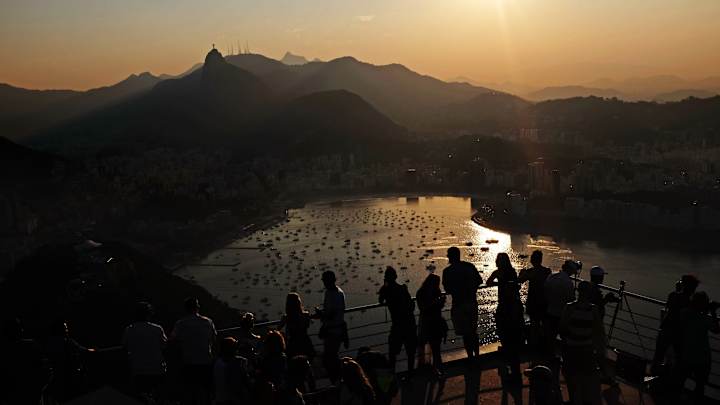Brazil's biggest city offers kind words for Olympic hosts

SAO PAULO (AP) It's a 60-minute flight from the Olympic host city, but worlds apart in spirit and style. If Rio de Janeiro is more like a chilled-out, sun-worshipping Los Angeles, Sao Paulo is all New York City - the intense financial nerve center of Brazil.
Long rivals, the nation's two most-populous places once competed for the chance at an Olympic bid, and even though Sao Paulo had to sit back and watch the 2016 games unfold from afar, Paulistanos have had some kind, if not qualified, words for the Cariocas.
''Given the laid-back reputation as a city where people prefer to have fun than work, I did not think Rio could do it,'' Andre Tanabe, a civil engineering student at the University of Sao Paulo, said while watching Argentina defeat Brazil in Olympic basketball. ''Rio surprised me and, I think, many others in Sao Paulo.''
Added Beatriz de Almeida, an architect here: ''I never thought Cariocas would pull it off. But they did, and they did it beautifully.''
During much of the 71 years that Rio was the country's capital, from 1889 to 1960, Sao Paulo was seen as an ''irrelevant city with little to offer,'' said Monica de Carvalho, professor of sociology at the Pontifical Catholic University of Sao Paulo. But by 1960, when the capital was transferred to Brasilia, Sao Paulo had grown into the financial and industrial capital of Brazil. It's a hub for factories that make everything from shoes to cars.
That's when the rivalry began, Carvalho said, adding it has never been a hostile one but rather friendly one-upmanship, with residents of each city claiming superiority over the other.
''Over the years that rivalry has been reduced to almost nothing, and today the two cities complement each other,'' she said.
When the Brazilian Olympic Committee was shaping its unsuccessful bid for the 2012 Summer Games, it chose Rio over Sao Paulo as the place to pitch. Brazil's UOL news portal warned the decision could ''aggravate the historical climate of rivalry between the two cities.''
That didn't happen, Carvalho said, ''because Rio's Cariocas did not claim the games as their own, but rather as something that belongs to the entire country ... as something that all Brazilians should be proud of.''
The same has been true throughout the 2016 Summer Games, with some soccer matches even being held in Sao Paulo, Brazil's most populous city with 11.3 million people. Rio is home to about 9.6 million.
Sipping a cup of coffee in a posh bakery in Sao Paulo's Jardims district, Rafael Pereira put down his ham and cheese croissant when asked about the competition between Rio and Sao Paulo. ''Rivalry?'' he said. ''What rivalry?''
''I grew up hearing how Sao Paulo is better than Rio, because we are the so-called locomotive that drives the economy and creates jobs, while Rio is the city of Carnival, music and beaches where people prefer to play rather than work,'' he said.
Pereira, a lawyer, enjoys his frequent trips to Rio to work and visit friends, and said he prefers the word ''contrast'' to ''rivalry.'' Sao Paulo has better restaurants, nightclubs and theaters, while Rio is more scenic and the Cariocas far more relaxed.
''One city is not better or worse than the other,'' Pereira said. ''They are different.''
